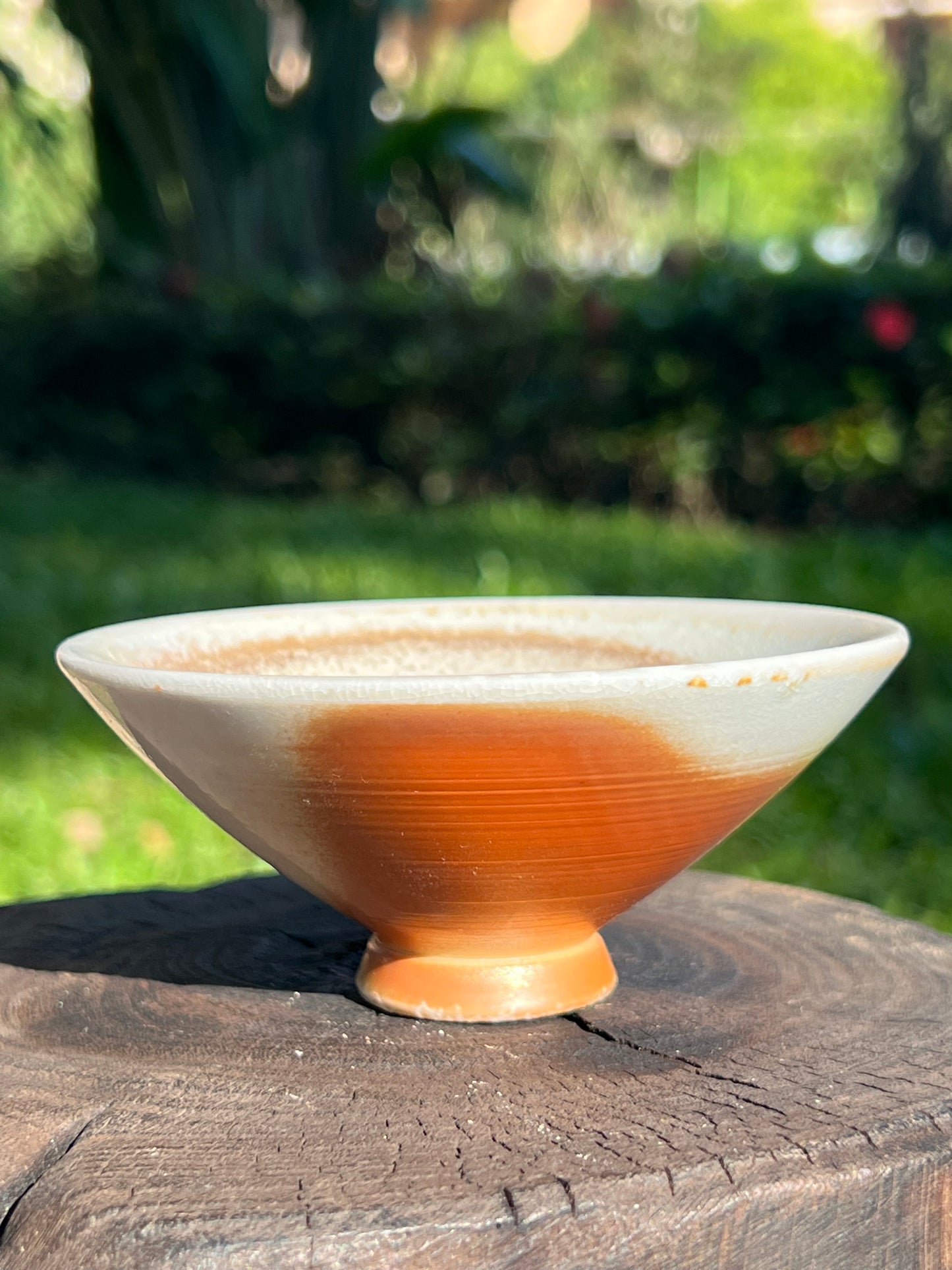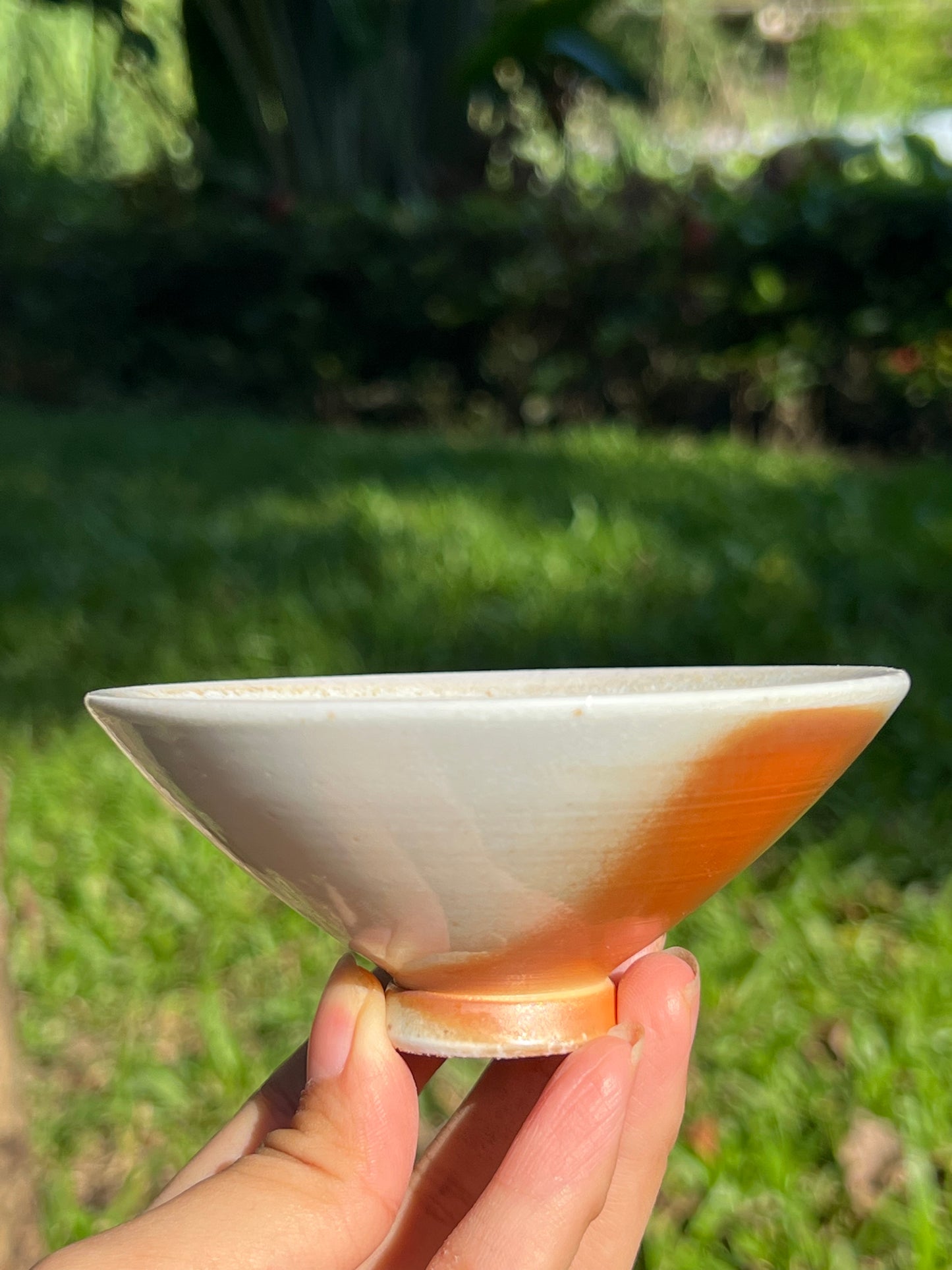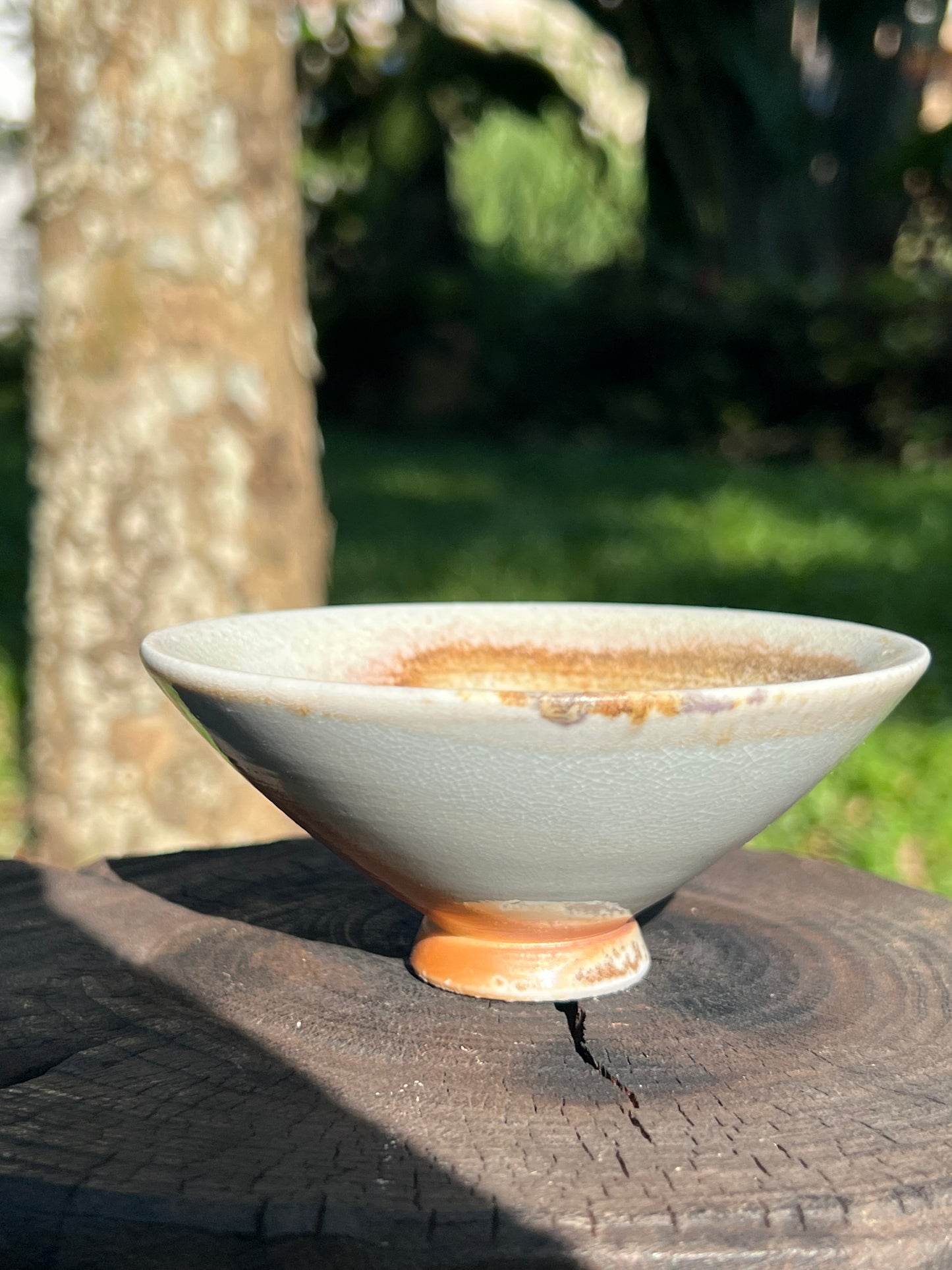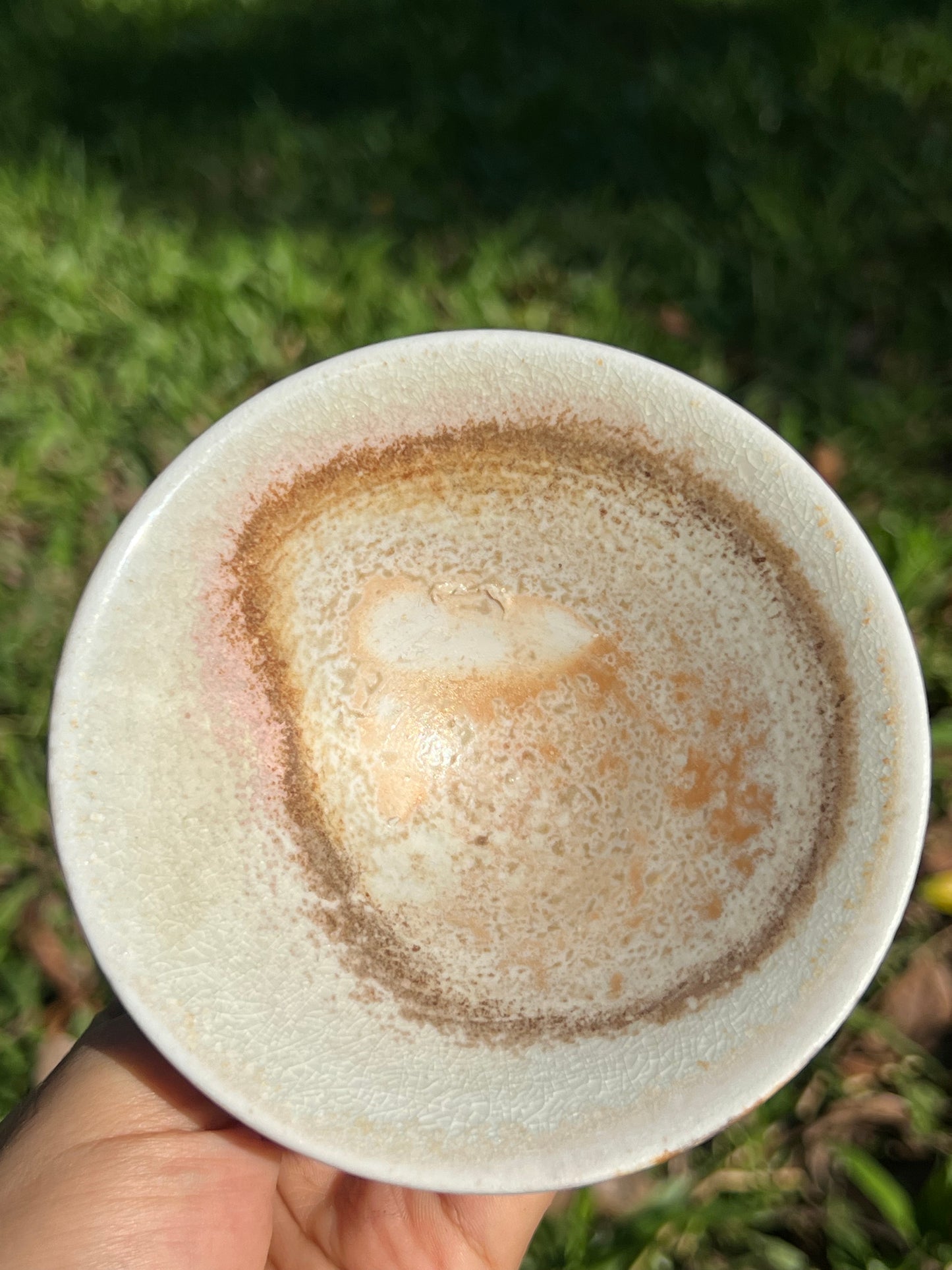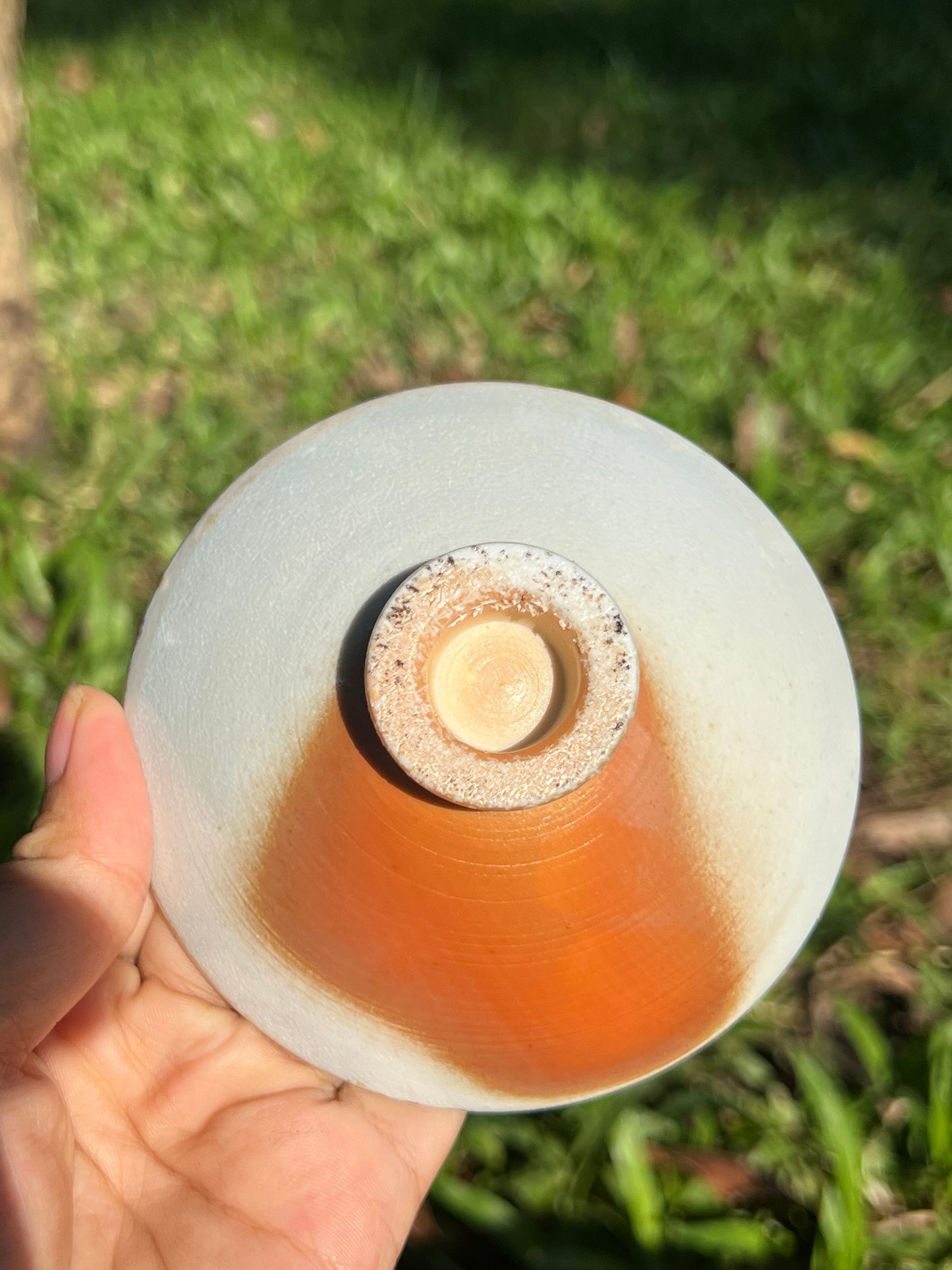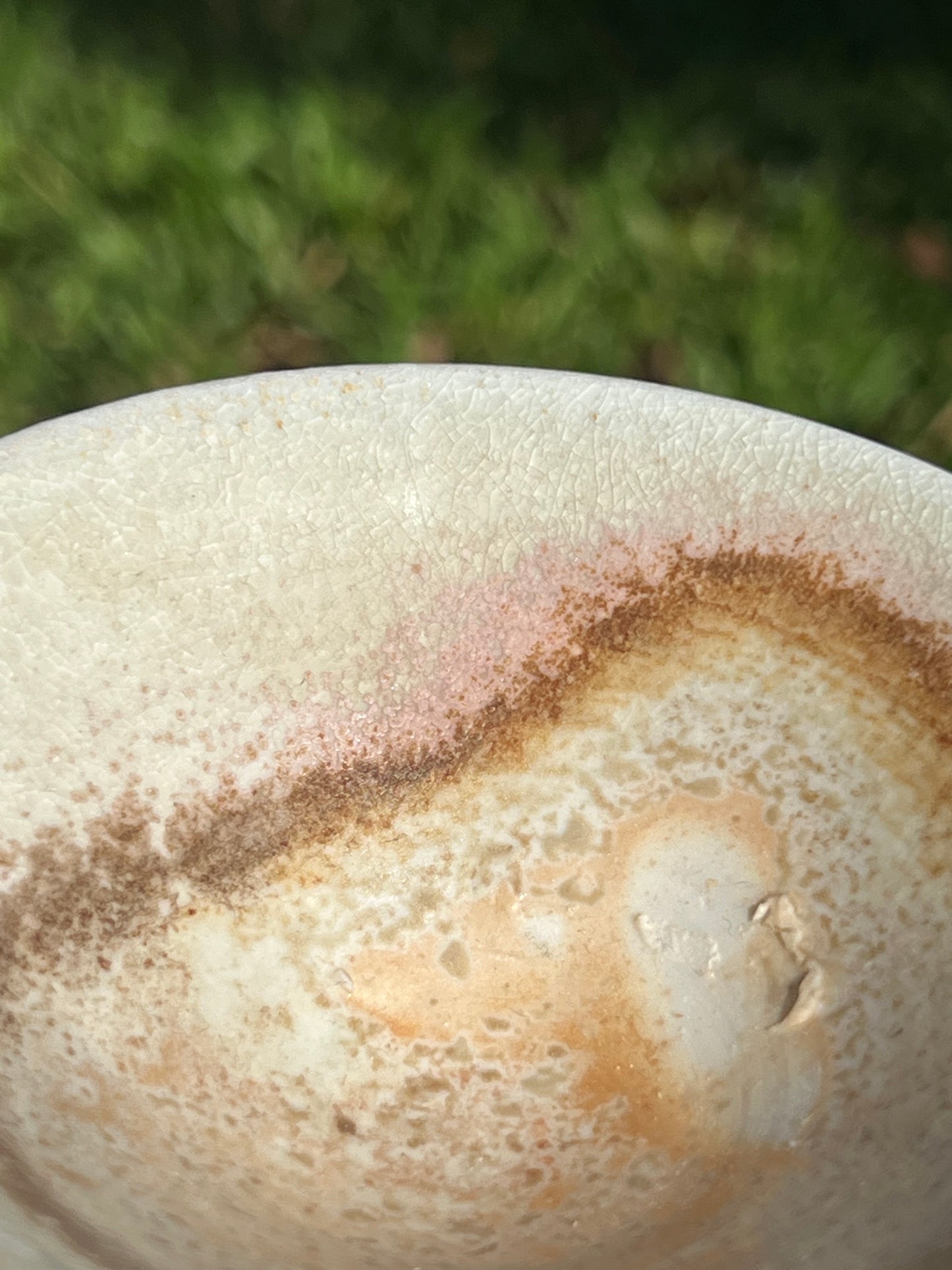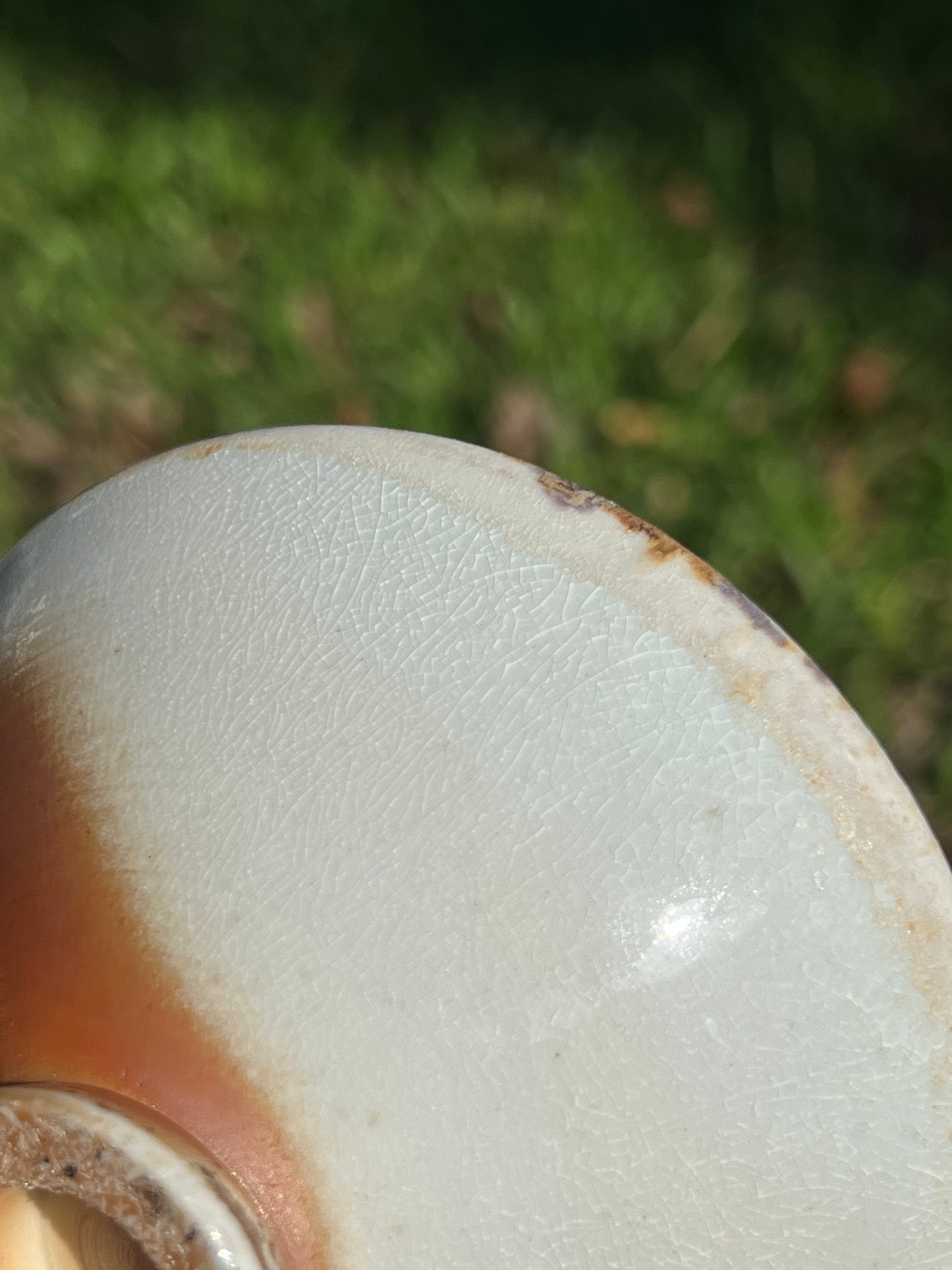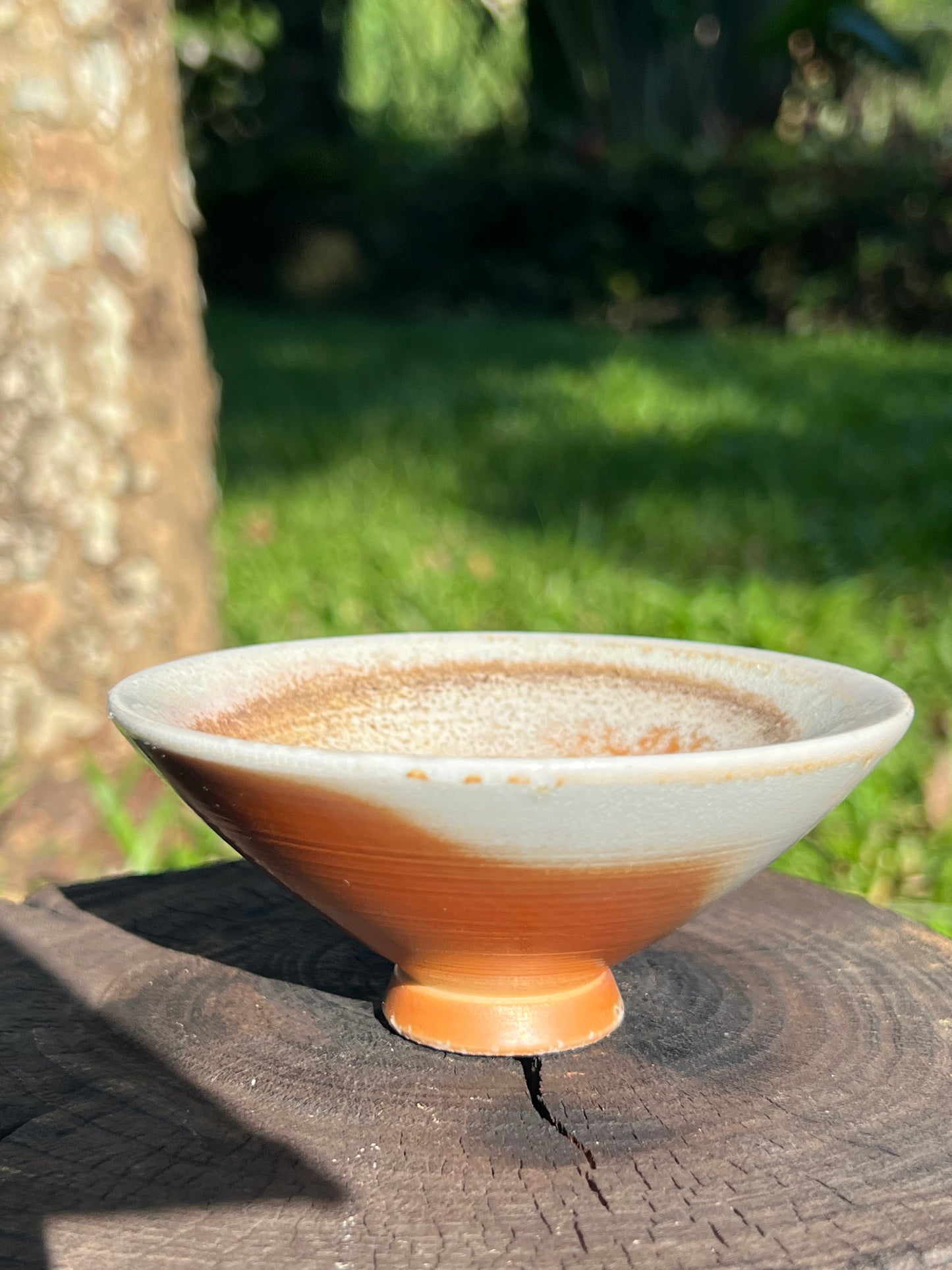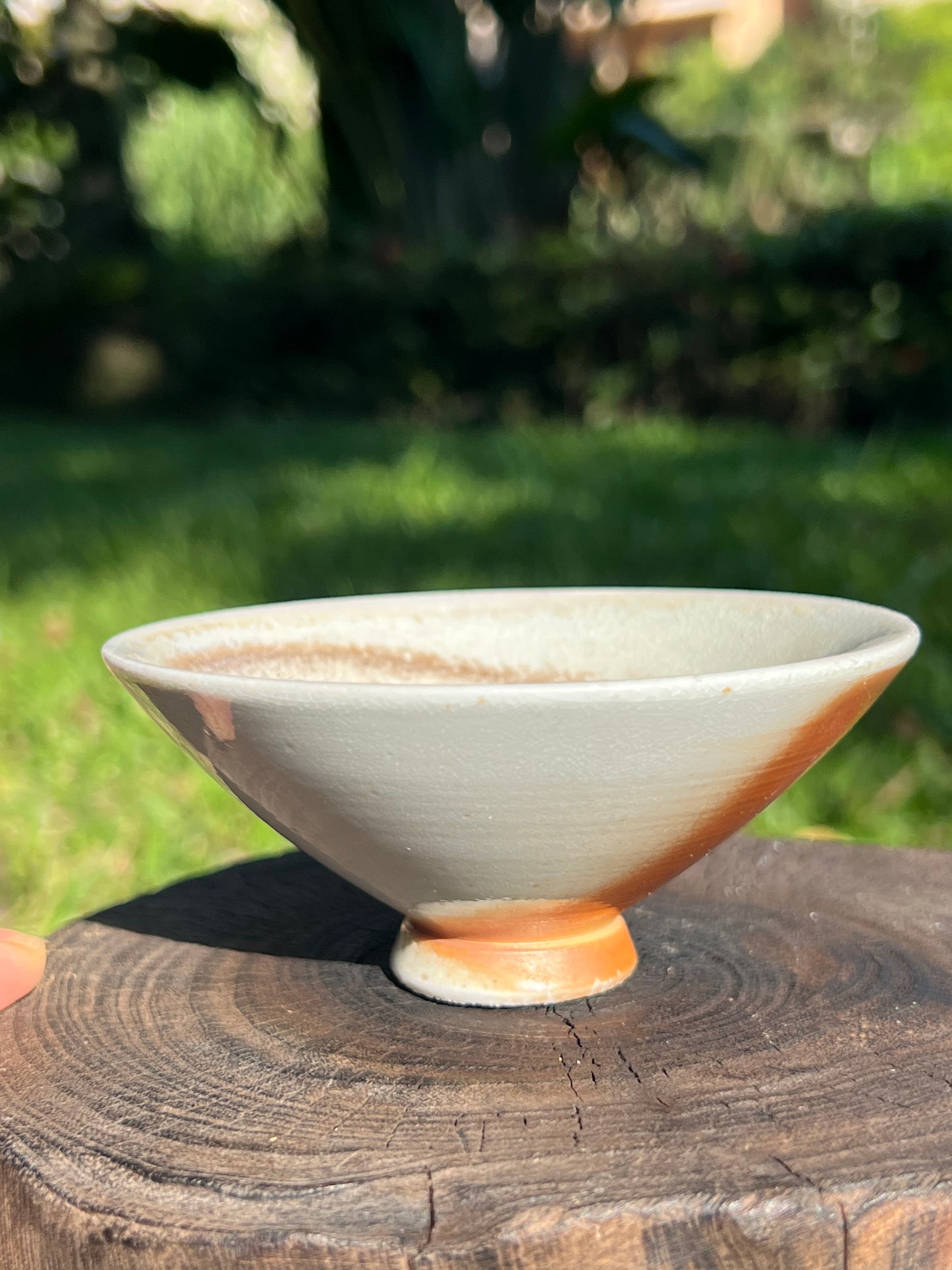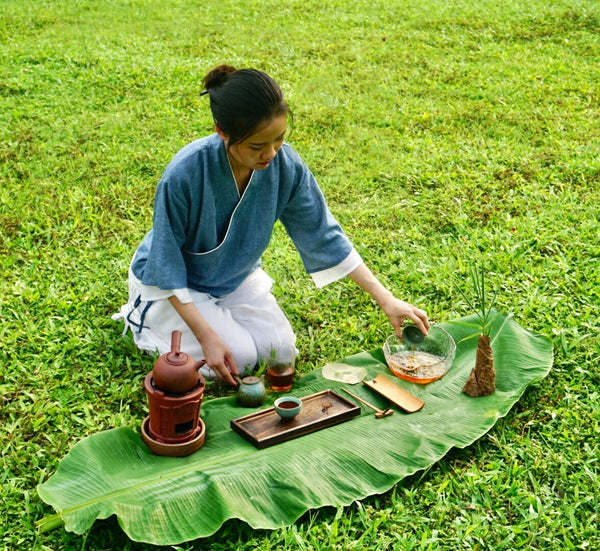Jiangnan.Art.Tea
Woodfired Handmade Crude Pottery Teacup Gloss Unique Artwork Chinese Master Pottery Ceramic Japanese Ceramic Tea Ceremony
Woodfired Handmade Crude Pottery Teacup Gloss Unique Artwork Chinese Master Pottery Ceramic Japanese Ceramic Tea Ceremony
Couldn't load pickup availability
This antique-style crude mud teacup is made by a Dehua wood-fired pottery craftsman. The teacup form looks like a Chinese hat, Douli(斗笠), so we also call it a Douli teacup.
After 3 days of the wood-fired process, the natural wood ashes fall on the surface of the teacup, and then they become this natural gloss. The beauty of woodfire artworks is the magic of wood and fire, all potteries without adding any artificial glazing but they come out of a woodfired cave with different and natural gloss on them.
Please understand that wood-fired pottery artwork can't be perfect as electric firing pottery: it may have some little cracks on the surface, the teacup mouth can't be totally round, it may have little kiln slag on the bottom etc.. but please watch the video and photos for more details or please contact me for more photos :)
material: crude pottery mud
place of production: Dehua, China
capacity: 90ml
P.S Can you please provide me with your phone number when you place the order, it’s important for delivering the package, thank you in advance :)
Woodfired pottery presentation:
kiln sweat: During the firing of ceramics, a glassy substance will be produced on the inner wall of the porcelain kiln, which is mostly dark gray or off-white. The cause is mainly twofold. One is that the kiln building itself contains a fluxing substance, which occurs at high temperatures. Change and form a glassy state: Second, the fluxing substance contained in the fuel will also adhere to the kiln wall under certain circumstances to form a glassy substance. It is usually called kiln sweat.
All ceramic products that are fired with firewood as fuel can be called firewood. The works can be divided into two categories: glaze (base glaze) and unglazed (natural glaze), such as the Song Dynasty Tianmu bowl and celadon glaze. It is glazed. Japanese Bizen-yaki is not glazed (whichever is the natural falling ash effect). Firewood burning is an ancient technique, and the difficulty of firing a kiln is quite high. The success or failure of firewood works depends on the relationship between soil, fire, wood, and kiln.
Soil: There are many pottery clays for firewood burning, and the potters make their own preparations, considering the heat-resistant temperature of the pottery clay, the properties of the wood kiln, and the type of firewood; the pursuit is to make the soil produce a kind of warm, honest, calm and restrained firewood. beauty of.
Firewood: Generally, wood needs to be allowed to stand for more than three to six months (avoid being too humid) to facilitate burning. Its types include camphor, longan, lychee, lotus mist, and waste wood.
Kiln: It only uses wood to provide heat energy. Generally, it takes three to five days to burn the kiln. During this period, you need to throw firewood in shifts, the speed and method of fuelwood, the general type of fuelwood, weather conditions, air intake, and other subtle factors, Is continuously affecting the color changes of the works in the kiln.
Ash: When burning pottery in a wood kiln, the completely burned ashes are extremely light and drift away with the hot air current. When the temperature is higher than 1200℃(2192℉), the wood ash begins to melt, and the iron in the wood ash makes the iron in the pottery form a glaze, showing different color changes. The glaze formed in this way is called "natural falling ash glaze". Natural falling ash glaze is not very eye-catching at first glance, but the more you look at it, the more attractive it becomes. We cal it the gift from wood and fire nature
